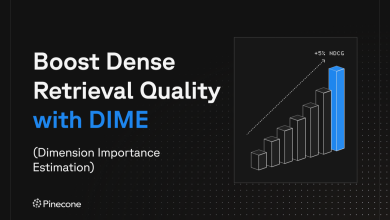
AI is developing at lightning speed. As fast as it changes and grows, so do the discussions around it. Creative people—writers, designers, photographers, and illustrators—may have one opinion on a Monday and another two weeks later. Add the phenomenon’s unknowns to the mix, and you don’t know what to think.
The Scare We Share
Only two years ago, we started seeing the first AI-generated images created by regular folks, and we laughed at seven-fingered hands and missing ears. The speed at which AI progressed from that ugliness to hyper realistic—and dare I say beautiful—images is part of the scare creatives share. The announcements by respected news organizations about future reporting with AI’s help only confirm that AI is on an unstoppable march to who-knows-where. As creatives, we’re left asking ourselves: is creativity being reduced to a few prompts?
The Dawn of the Prompter
I tried prompting a script into an acceptable “read” as a test to see if I could get even close to a human-nuanced voice. I couldn’t. After about eight seconds, you start hearing strange afflictions and bizarre cadence. I couldn’t prompt the script well enough, making me wonder if we’ll soon see résumés with an MA in prompting.
The Moral Aspect
A day later, I booked a session with a professional voice-over artist and could exhale again. The fact that I even dabbled with AI made me feel guilty. The creators out there are specialists in what they do. Damn it, I’m one of them. How dare I look to the dark side? Isn’t AI a copy of a copy of a copy? Whom am I stealing from? Whom am I putting out of business?
Clients Want Us to Use It
In a recent pitch, a client asked what aspects of AI we were using. That’s a fair question, even though we weren’t expecting it. The pressure to use AI among corporate enterprises is enormous. AI represents the automation the Jetsons promised us in the 1960s. “Yippee,” the CFO thinks, “my bottom line is going to look just dandy.”
Yet AI isn’t like the Digital Transformation wave of ten years ago, when companies fell into a spending frenzy simply because every other company was doing it. AI is real and exciting in the industry. In a creative agency, however, the creative benefits aren’t obvious. We fight against AI-generated creativity—we are purists, after all. We can’t see ourselves making an AI film. We have too many emotional reasons not to, such as human friends in the industry.
The Very New Tools of the Trade
What plays in my mind is the difference between looking at AI as a threat versus AI as a tool. If you consider the latter, then you can decide which tools to use. Inside my agency, tempers run high, and some dismiss AI altogether even though they know amazing creative tools are emerging. People consume social media like a bag of popcorn—you can’t stop until the bag is empty.
What, then, is so bad if your quick post uses an AI voice and visual? Is it acceptable to extend a background to make a vertical picture horizontal, even though that background is now completely fabricated? The morality of these questions don’t seem to matter; people are doing it—period.
The AI Judgment Day Is Far Off
While all of us are exposed to visual AI fabrications, the clear-minded are also thinking about where the line will be drawn. What is acceptable and what is not? We’re seeing false and fake news supported by AI images and videos that are very close to reality. We know this because AI has that unnatural clarity and sharpness. On the flip side, when we see a too-good-to-be-true image, we now ask ourselves if it’s AI-generated.
Protests are already emerging when AI is used to provoke political reactions and cause indirect harm. Right now, celebrities are open targets and are being misused just for fun. This calls for oversight, which no politician has tackled yet.
AI Can’t Do Everything, Can It?
As a creative, I will use AI as a research tool, as a proofreader to help me with commas, as a photography-correction tool, and as a management tool, but I won’t let it enter my creative brain. I need to design, art direct, and write with frustration. It still has to be hard to get to a good idea—never just a prompt.
Jeroen Bours Bio
Dutch, Israeli and American, Jeroen Bours is a true international mind split between strategic thinking and creative chops. He’s credited with campaigns such as Mastercard’s Priceless (with Joyce Thomas), the invention of numerous marketing and business ideas such as OPEN for American Express, Beyond Petroleum for BP, and launching local and international campaigns for AT&T, IBM, BMW, Jaguar, AIG, Chubb, Liberty Mutual, Bayer, Absolut, Sheraton and Marriott Hotels.
You can find out more by visiting the website: https://www.darling.nyc/



